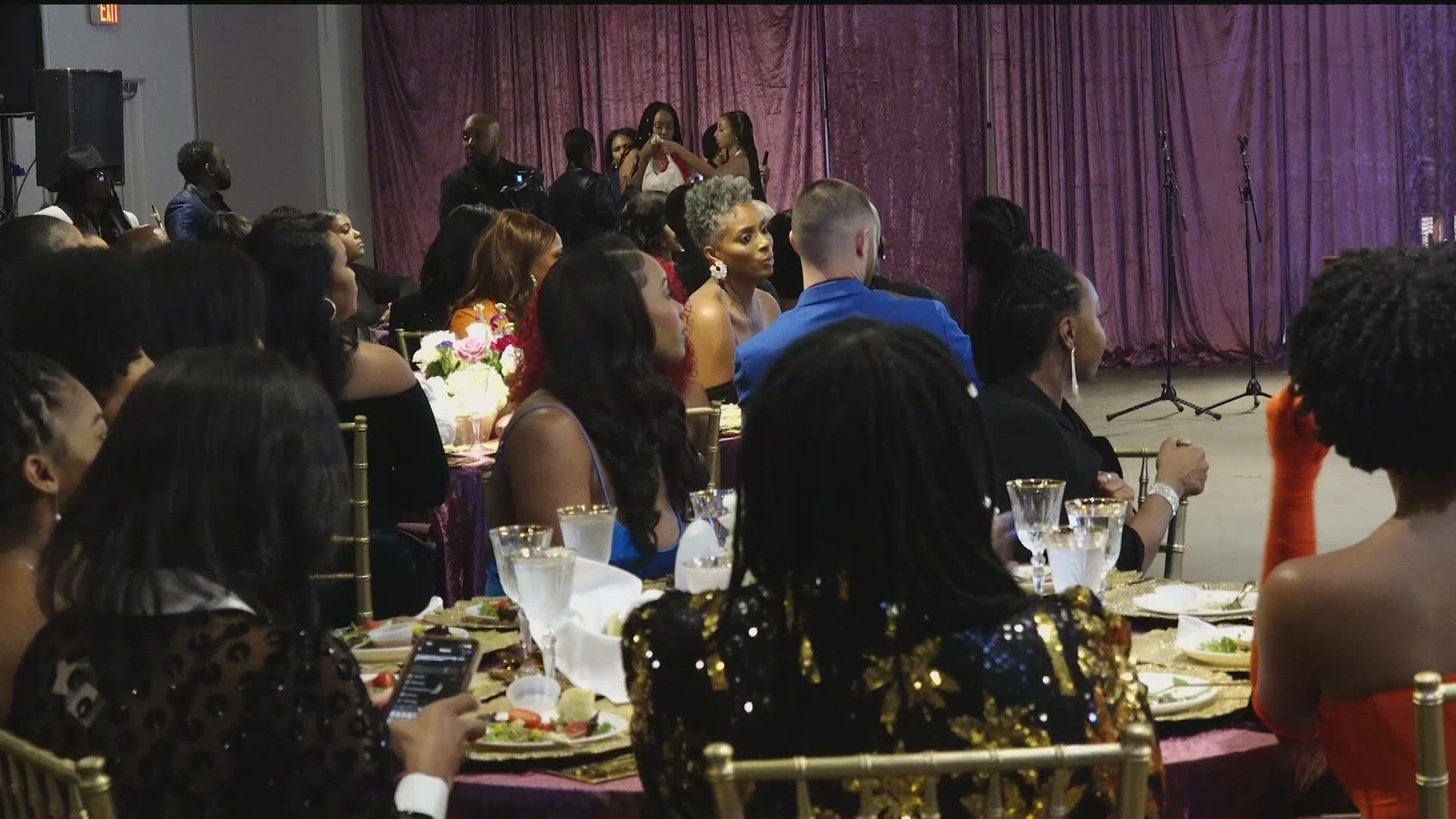ATLANTA — From YouTube to Instagram to TikTok, there is a growing number of people who aren’t just scrolling and posting as a hobby. Some are ditching their 9 to 5s to become social media influencers full-time. The social media influencing industry has quickly become a big moneymaker.
According to the National Bureau of Economic Research, from 2016 to 2021, the influencer marketing economy grew from nearly $2 billion to almost $14 billion. While the market has grown rather quickly, one study shows there is a pay gap when it comes to influencers of color.
According to a study by the MSL group, the pay gap between white influencers and BIPOC (Black, indigenous, and other people of color) influencers is 29%. That gap jumps to 35% when comparing Black influencers and white influencers. This issue was addressed during the Black Girl Digital Awards in Atlanta.
On Sunday, hundreds of Atlanta’s most influential stars gathered for the award show focused on recognizing Black women creators for their achievements in brand partnerships and positive impact in their communities.
“Black women, Black culture, we drive pop culture but a lot of the times in this industry, we don’t get the acknowledgement, we don’t get the equal pay. 'So if we don’t do it for ourselves, then who will?'” said LaToya Bond the show producer for the Black Girl Digital Awards. Her sentiment was echoed among many influencers in attendance.
Beauty influencer Simone Sharice, quit her day job about five years ago, making the move to influencing full-time.
“I wanted to help people at home get their hairstyles looking fabulous without having to break the bank,” said Sharice.
The Atlanta-based influencer has a following of 433,000 subscribers on YouTube and 122,000 followers on Instagram. It’s a following she’s worked for years to build and one that is still growing. Her following and the trust she’s built with her followers have allowed her to seek out brand partnerships and other deals that put money in her pocket. When asked what is still needed to improve the industry, Simone said that there is a need for equality.
“Equality, when it comes to payment, when it comes to campaigns, when it comes to sponsorship,” Simone said. “Sometimes it is hard for Black women to get the same amount as white people, so I think equality needs to be spread more throughout the industry."
LaToya Shambo founded Black Girl Digital, the organization behind the award show honoring heavy hitters like beauty influencer Jackie Aina. Shambo said that she created the organization to help advance Black women creators in the industry. Creating spaces where women can meet, gain inspiration from, and learn from each other is part of the goal. Shambo said the new Gen Z era of influencers is making big changes.
“I think the younger generation, Gen Z, they are actually making a lot of impact and a lot of changes," Shambo said. "They are showing up as their authentic selves, they are risk takers, they are showing up for their communities and building their communities."
When it comes to negotiating brand deals, Simone has these tips:
- Open up the discussion with another content creator you trust. People will accept whatever rate a brand is willing to give if they don’t know that there might be more money within the budget. Share rates if possible with friends.
- Negotiate confidently.
- Let the brand know what separates you from the other creators and why you can be of value to their company.
- Building connections: Sometimes it's about who you know!
- Be organized and professional!
For more information on Black Girl Digital and this year’s award winners, you can head to blackgirldigitalawards.com.

